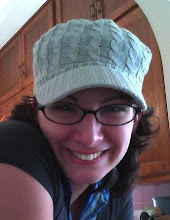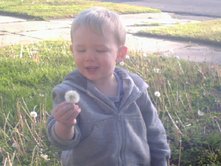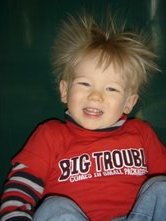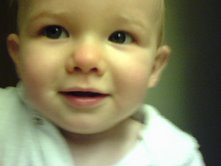
I read two books at the same time, crazy enough. John Grisham's "The Street Lawyer" (published by Dell in 2003) and Shane Claiborne's "The Irresistible Revolution" (published by Zondervan in 2006).
One is a fiction story about a rich, white lawyer coming face-to-face with homeless people. The other is about how we are invited (dared even) to love so deeply we breathe life, hope, and imagination into the Church through the experience of "the outcasts and undesirables" (127).
The fiction story paints a picture of the pain and suffering of people who are homeless and the other composes a musical for living out passionate love. When read together, the painting and the symphony are composed into something beautiful, something exciting.
Grisham brings us alongside the life of Michael Brock, a wealthy lawyer who's marriage is falling apart about as quickly as his grasp on life. When a homeless man takes Michael and several of the lawyers in his firm hostage, it changes Michael's perspective on life.
From the homeless man's mouth we read these penetrating questions: "Have you ever been hungry?" and "Have you ever slept in the snow?" The homeless man adds: "You make a lot of money, yet you're too greedy to hand me some change on the sidewalk... you spend more on fancy coffee than I do on meals. Why can't you help the poor, the sick, the homeless? You have so much" (16).
And then Grisham paints a haunting picture for us. Through the mind of Michael, transformed by his experience of the homeless man, we see him walk into a shelter. Michael describes his experience like this: "I gawked in amazement at the sheer number of poor people stuffed into the basement. Some were lying on the floor, trying to sleep. Some were sitting in groups, talking in low tones. Some were eating at long tables and others in their folding chairs. Every square inch along the walls was covered with people sitting with their backs to the cinder blocks. Small children cried and played as their mothers tried to keep them close. Winos lay rigid, snoring through it all. Volunteers passed out blankets and walked among the throng, handing out apples" (75).
Grisham does a phenominal job of using words to place us into scenes where it hurts. It is even more effective when it enables us to see in our mind's eye the pain and suffering Claiborne dares us to touch.
When Michael is helping to feed a long line of hungry people he asks a lady who served for years, "Do you ever get used to seeing these people?" And she responds, "Never, honey... it still breaks my heart" (81).
Shane tells us love is hard. He quotes Mother Teresa saying, "Love until it hurts, and then love more" and adds with a quote from Dorothy Day that love is "the most difficult and the most beautiful thing in the world" (136).
With Michael, we get a glimpse into what it would look like if someone took the time and effort to learn the pain of loving people who suffer.
Before long Michael falls in love with a family, a mother with four children. He plays with the 4 year old and rocks a baby to sleep. He even goes and buys them diapers and other things, hoping to help them. Then something tragic happens to the family and Michael's world is turned upside down. Someone he loved was hurt.
Shane also talks about loving others and says, "we have family members who are starving and homeless, or dying of AIDS, or in the midst of war" (202). And this author pushes us to see beyond ourselves, see beyond our own genetic or national family to see our family is "without border" and is "both local and global" (200). Our family is "extended across the planet" (202).
With Michael, the rich lawyer... we see ourselves. We see someone just like us who learns to love the crying baby and the hyper four year old. We see Michael glimpse into the life of the homeless and then do something about it!
Michael's family and friends think he's gone crazy. He gave up a nice home, lexus, and a job that paid tremendously well, for a tiny little office without matching chairs. He gave up "stuff" for a job from which he could only hope to receive a paycheck.
One friend tells Micahel "it's obvious you've lost your mind" (154). And I hear Shane Claiborne's words ringing out, "what do we do when we are the ones who have gone sane in a crazy world" (21)? For who is really crazy? Michael, the one who loves enough to be amongst the homeless or those who think he's crazy for giving up so much money?
However, if I am honest, there is at least one stark contrast between the books. Grisham speaks of the lawyer as the voice for the voiceless. Someone tells Michael, "the homeless have no voice. No one listens, no one cares, and they expect no one to help them" (104). I am afraid that sentence would cause Shane to have a heart attack from the pain in his chest.
Shane says, "Everyone has a voice" and suggests we are "too quick to assume folks cannot speak for themselves" (128). Shane goes the extra mile on this one. He goes as far as to say, "It is a beautiful thing when folks in poverty are no longer just a missions project but become geniune friends and family with whom we laugh, cry, dream, and struggle" (128).
Wow. No longer are the homeless and poor simply "weak" to us. They become family, someone we love like a brother or sister. Someone we would never claim to be voiceless.
What a challenge. What a dare to join the adventure; to join the irresistible revolution... as a friend, as family... to the homeless.
One thing I love to read are Shane's words about how no one is beyond redemption. He says, "We are made of the same dust. We cry the same tears" (266). No one is so evil that we should consider them beyond love, beyond grace, and beyond transformation. Shane says, "how easily we objectify and demonize others" (265) and dares us to imagine another way to view even the people we would deem most evil. He encourages us to "have new eyes" so we might "look into the eyes of those we don't even like and see the One we love. We can see God's image in everyone we encounter" (266).
In Grisham's book, in the last several pages, we see redemption play out in a seemingly impossible way. Love, peace, and hope transform even the wildest of beasts in the end. Grisham could have easily let his book end without a redemptive quality and let the sinners burn for all eternity... but does not.
However, I will not share how this happens! You'll have to read the book to see it for yourself.




No comments:
Post a Comment